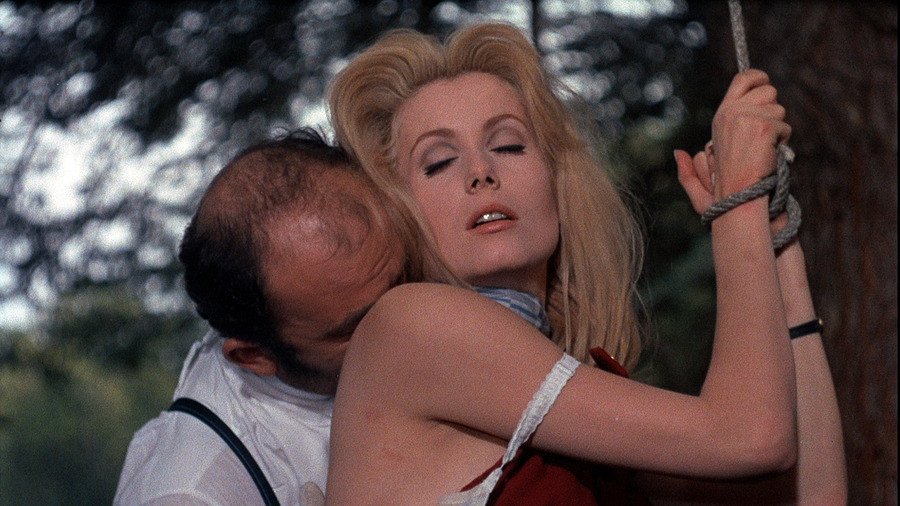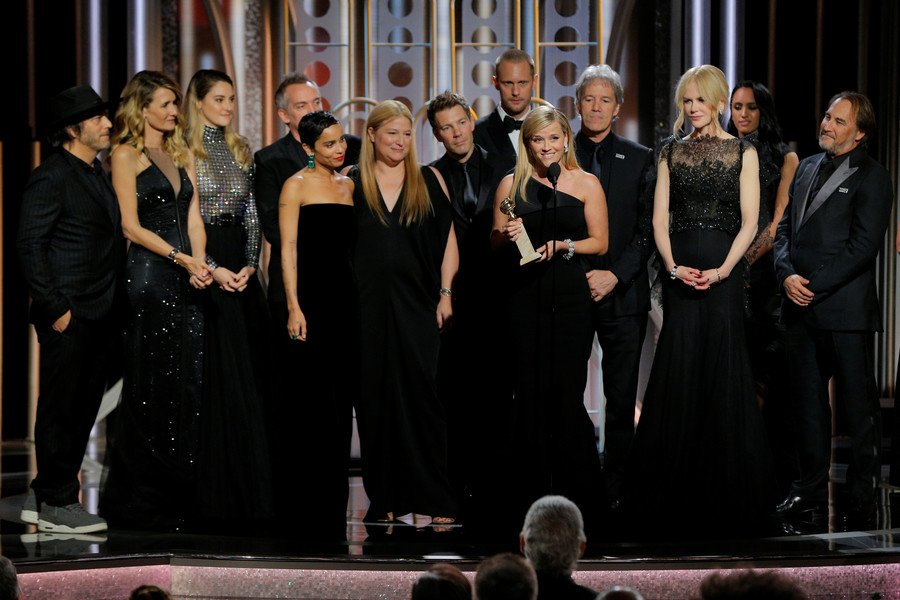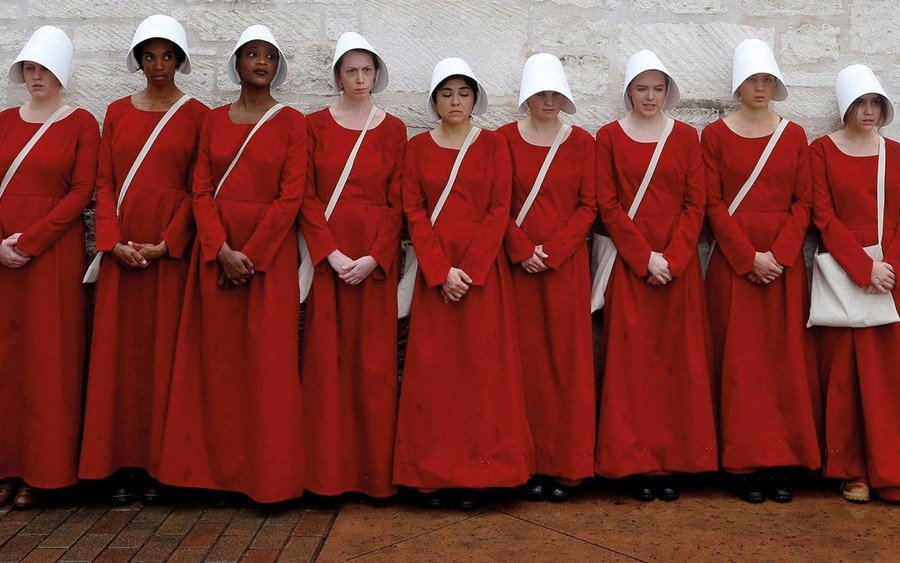French women are brave to speak up for sex, but their #MeToo opponents want power, not pleasure

The cri de coeur of Catherine Deneuve and other French intellectuals helps destigmatize human sexuality, but won’t counter #MeToo, whose proponents are using the scandal as a tool in a far grander political battle.
READ MORE: #MeToo frenzy deprives men of ‘indispensable freedom’ to hit on women – Catherine Deneuve
During a four-month period in which publicly discussed sexual encounters have been framed exclusively in the language of trauma, HR sanctions or the courtroom, pondering whether #MeToo was making everyday romantic life less rewarding for the innocent has felt frivolous, if not insensitive. Even skeptics of the campaign, unleashed by the Harvey Weinstein allegations back in October, have constructed their defense on concerns about due process and the mob mentality stoked by social media.
The counterattack of the hedonists
In comparison, last week’s manifesto authored by Deneuve and four writers, and signed by 95 more female public figures, goes on the offensive, striking a deliberately provocative, hedonistic tone.
“A freedom to bother is indispensable to sexual freedom. Sexual impulses are, by nature, offensive and primitive – but we are also able to tell the difference between an awkward attempt to pick someone up and what constitutes a sexual assault,” said the letter in Le Monde, which Deneuve said she stood by on Monday, after a week-long white-hot public debate.

The sharp tip of the argument provided the easiest route for critics to accuse the authors of pandering to patriarchy and writing off serious offenses as trivial incidents. And while their attempts to decriminalize billions of humans who dared “to touch a woman’s knee, try to steal a kiss, talk about ‘intimate’ things during a work meal, or send sexually-charged messages to women who did not return their interest” will assuage the guilt pangs of failed flirts worldwide, this has devolved into a fruitless discussion on boundaries, and on one occasion, whether women can orgasm during rape.

But this is not why the letter is anathema to the anti-harassment campaign. The authors have in their sights some of the most inviolable orthodoxies of the feminist movement.
The first – that women at their deepest strive for sexual equality in their personal life, and resent objectification.
“A woman can, in the same day, lead a professional team and enjoy being a man’s sexual object, without being a ‘whore’ or a vile accomplice of the patriarchy,” write the authors, among them Catherine Millet, whose bestseller chronicled a string of willingly debasing orgies in which her body served as a receptacle for a string of anonymous naked men.

The second is that unwanted advances do not necessarily lead to trauma, and can even be “non-events.”
“Incidents that can affect a woman’s body do not necessarily affect her dignity and must not, as difficult as they can be, necessarily make her a perpetual victim,” says the letter.
Anglo-Saxon feminism has always viewed the sexual arena as a battleground in which the unequal power balance between the sexes has played out. “Intercourse is the pure, sterile, formal expression of men’s contempt for women,” wrote Andrea Dworkin. “Sexuality is a social construct of male power: defined on men, forced on women, and constitutive of the meaning of gender,” stated Catharine MacKinnon, who defined and codified the understanding and legislation of sexual harassment in the late 1970s that still dominates today. Meanwhile, sexual abuse ending with rape is the ultimate, nonpareil form of that domination – a most symbolic crime.
Within that framework, any submissiveness from a woman is a sign of her being co-opted by the patriarchy. In turn, trauma is the expression of that imbalance. If there is no victim, there is no inequality. What Deneuve’s letter suggests is tantamount to heresy.
Hungry for the power
It is also power, not sex, that is at the heart of the overall purpose of #MeToo. It is not so much as a campaign against harassment, as the vanguard and nexus of a battle for social rights and privileges raging throughout Western society. A chance for its proponents to redraw workplace regulations, achieve a higher status for professional women, and bend the legal system to its will, even if that means disposing of well-established concepts such as slander and presumption of innocence.

It is just one bullet in a spinning revolver cylinder. In recent times, Hollywood celebrities – to pick just one constituency of #MeToo warriors – have demanded more equal pay (but only between headlining actors and actresses) more jobs for women as directors, less whitewashing of ethnic characters, and more prominence for minority artists. #OscarsSoWhite might seem like a long-forgotten era in social media terms, but it was less than a year ago that Moonlight was sweeping the Academy Awards as its vindication.
The heightened urgency of the current campaign is not just prompted by the gravity of past injustices, but the changed status of Donald Trump. Much as he has loomed in the shadows of the scandal – his own misdemeanors having already played out in detail in front of the media – make no mistake, either subliminally, or often directly, the entire campaign is a howl of rage at the man in the White House.
For all their bravado, the Frenchwomen, with their plea for nuance, come across like an elderly bespectacled assistant teacher trying to break up a food fight in the cafeteria on the final day of school. There are much more elemental forces at work here, and it is not surprising that for some they are nuisance, invading the field of battle ahead of a final charge against the forces of neo-Hitler, Sauron, Voldemort, or whatever other mythical representation of the enemy has gained currency among the #Resistance.
Similarly, their accusation that #MeToo advocates are pushing a “Victorian moral outlook” seems less relevant here. While it is true that there is a streak of feminism that sees women as “a species ‘apart,’ children with adult faces who demand to be protected,” in #MeToo the alignment between Mike Pence-style moral conservatism and trigger warning, safe space feminism is predominantly an accidental byproduct. What Deneuve et al are fighting against is not a coalition of prudes, but professional victimhood advocates – skilled activists, capable of utilizing very real trauma for wide-ranging political ends.
The manifesto’s apparent shock at “denunciations” and “the foray into the private sphere or self-proclaimed prosecutors” that have led to “a climate of totalitarian society” seems belated, naïve even. As anyone who has followed the treatment of race, religion, immigration, and free speech – on campus or on social media – in recent years cannot be surprised at “being told what is proper to say and what we must stay silent about” and being “considered traitors or accomplices for refusing to fall into line.”

Maybe in the 1940s Simone de Beauvoir had the luxury of a more moderate French feminism, and an assortment of complex, commonsense and contradictory views, but her successors can’t pick their battles, as even feminist icon Margaret Atwood has also recently discovered. While 1984 comparisons are inevitably overblown, the point here still stands – you can’t dismantle the Junior Anti-Sex League without tackling newspeak, doublethink, thoughtcrime, and the political machinery that supports them. Whether this leaves the letter writers – who have been condemned by Emmanuel Macron’s government – in the clammy embrace of Donald Trump and Marine Le Pen, or searching for solace among the currently unelectable old-school liberals and radical libertarians, or starting their own political movement, is yet unclear. But many may choose the option taken by millions of #MeToo dissidents worldwide – to shut up, hunker down, and get on with their private lives in utter detachment from what is being said in the public sphere. Though that really would be like living in a totalitarian state.
Igor Ogorodnev for RT















